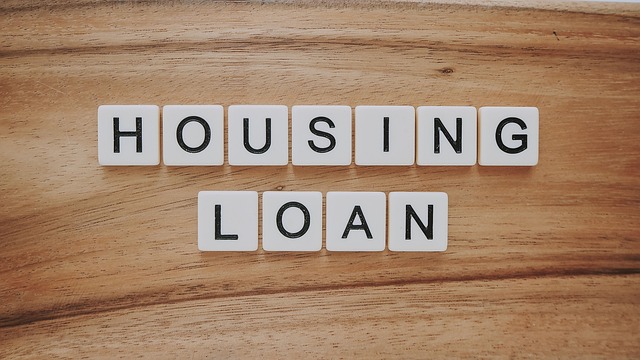In Denver's competitive real estate market, bridge loans offer buyers and sellers short-term financing to close deals quickly. These gap funding solutions fill immediate cash flow gaps, avoiding missed opportunities or delays in renovation projects. Types include hard money bridge loans from private lenders and seller-financed options. To secure a bridge loan, assess eligibility, choose a reputable lender, prepare financial docs, and ensure a transparent application.
“Bridge loans, a clever financial tool, are transforming the real estate landscape in Denver. These short-term, high-value loans fill the gap between traditional financing and the time it takes to secure permanent funding, offering a lifeline for investors and homeowners alike. This article explores the ins and outs of bridge loans in Denver, from their purpose and benefits to the various types available. We’ll guide you through the process, step by step, ensuring you’re informed about this powerful financing option.”
- Understanding Bridge Loans in Denver
- When Is Gap Financing Necessary?
- Types of Bridge Financing Options
- Applying for a Bridge Loan: A Step-by-Step Guide
Understanding Bridge Loans in Denver

In the competitive real estate market of Denver, understanding gap financing options like bridge loans can provide a strategic advantage for both buyers and sellers. A bridge loan is a short-term financial solution designed to help individuals cover immediate funding gaps when purchasing property. These loans are particularly useful in dynamic markets where traditional mortgage financing might not be readily available or take too long to process. Denver’s fast-paced real estate scene often requires quick decisions, making bridge loans an attractive option for buyers seeking to secure their dream homes without delay.
Bridge loans offer flexibility and speed, allowing borrowers to close on a property before securing permanent financing. This is especially beneficial in situations where the buyer needs to sell another property first or wants to take advantage of favorable market conditions. Lenders in Denver typically provide these loans with clear terms and conditions, ensuring borrowers understand the interest rates, repayment periods, and any potential penalties for early repayment. By tapping into this form of gap financing, buyers can navigate Denver’s competitive landscape with confidence, ensuring they don’t miss out on desirable properties due to funding delays.
When Is Gap Financing Necessary?

In the real estate world, gap financing emerges as a strategic solution for investors and property owners facing temporary cash flow gaps. This type of funding is particularly necessary when there’s a disparity between the purchase price and available funds. For instance, in the competitive Denver market where bridge loans are prevalent, buyers might secure a contract on a property but struggle to cover the full amount before the closing date due to timing issues or limited capital.
Gap financing serves as a temporary lifeline, filling the gap between the acquisition cost and traditional mortgage funding. It’s ideal for situations requiring swift action, such as avoiding missed opportunities in a hot market or covering unforeseen expenses during renovation projects. Denver’s dynamic real estate landscape often demands quick decision-making, making bridge loans a go-to option for those seeking to navigate these financial hurdles seamlessly.
Types of Bridge Financing Options

Bridge financing, often referred to as a bridge loan Denver, is a short-term funding solution for real estate investors and property owners who need to fill a gap in financing. These loans are designed to provide immediate financial support while securing a longer-term mortgage or selling the property. There are several types of bridge financing options available, each catering to different needs and situations.
One common type is the hard money bridge loan, typically offered by private lenders. These loans have relatively simple qualification criteria, faster approval times, and flexible terms but often come with higher interest rates and fees compared to traditional mortgages. Another option is the seller-financed bridge loan, where the property seller provides a portion of the financing to the buyer as part of the sales agreement. This method can be beneficial when there’s a discrepancy between the asking price and the buyer’s budget, allowing both parties to close the deal more efficiently.
Applying for a Bridge Loan: A Step-by-Step Guide

Applying for a bridge loan in Denver is a strategic move for property investors looking to fill temporary funding gaps during real estate transactions. Here’s a straightforward guide on how to secure one:
1. Assess Eligibility: Before applying, evaluate your credit history, income, and down payment capacity. Bridge loans are typically unsecured, but lenders will still conduct a thorough review. Demonstrating strong financial health increases your chances of approval. Denver-based lenders often cater to both residential and commercial property investors, so tailor your application accordingly.
2. Choose the Right Lender: Denver offers numerous options for bridge loan providers. Research local banks, credit unions, or specialized hard money lenders. Compare interest rates, loan terms (typically short-term), and repayment structures. Online lending platforms can also facilitate the process by connecting you with multiple lenders simultaneously. Ensure the lender is licensed and reputable to avoid any pitfalls.
3. Prepare Required Documents: Lenders will require standard financial documentation such as tax returns, pay stubs, and bank statements. For property investors, a detailed property appraisal and an estimated sale or refinance agreement can be beneficial. Organize these documents in advance to streamline the application process.
4. Complete the Application: Submit your application through the lender’s preferred method—whether online or in-person. Provide accurate information regarding the property details, intended use of funds, and expected repayment timeline. Be transparent about any previous loan defaults or delinquencies, as these may impact your approval chances.
Gap financing, particularly through bridge loans in Denver, offers a strategic solution for property investors facing temporary cash flow gaps. By understanding when this type of financing is necessary and exploring various options available, you can efficiently navigate the real estate market. Whether it’s for purchasing a new property or covering unexpected expenses, bridge loans provide flexibility and speed. Following the step-by-step guide to apply for a bridge loan ensures a smoother process, enabling you to take advantage of Denver’s vibrant real estate opportunities with confidence.
